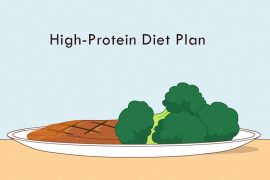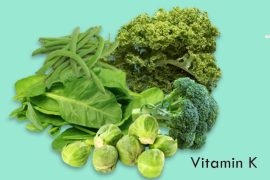Research underscores the significance of maintaining a balanced diet, particularly when initiated at a young age, as a key means of extending one’s life by years, if not decades. Despite this awareness, the allure and addictiveness of junk food often make it difficult to resist, despite its harm to bodily functions and potential for shortening one’s lifespan. The encouraging aspect, however, is that it’s never too late to begin enjoying the benefits of a nutritious diet rich in antioxidants, essential vitamins, and minerals. Simple yet effective lifestyle changes like incorporating a handful of nuts as a morning snack, reducing consumption of processed foods and sugar, and establishing a routine of regular morning walks can yield substantial health benefits that may surpass one’s expectations.
Here’s a summary of the key points:
1. Eat Plenty of Plants:
Aim to cover about three-quarters of your plate with vegetables, particularly those with deep, vibrant colors. Focus on non-starchy veggies, although winter squashes and sweet potatoes are acceptable in moderation.
2. Incorporate Healthy Fats:
Include foods rich in healthy fats, such as nuts, seeds, olive oil, avocados, pasture-raised eggs, and fatty fish like sardines, mackerel, herring, anchovies, and wild salmon. Use extra virgin olive oil for low or no-heat cooking, avocado oil for higher-heat cooking, and organic virgin coconut oil. Nuts and seeds are beneficial for weight management, diabetes, and heart health, and they provide essential minerals, protein, good fats, and fiber.
3. View Meat and Animal Products as Condiments:
Limit your meat and animal product portions to about the size of your palm. Plant-based meals are suitable as long as the protein comes from whole foods rather than processed sources like powders, bars, or imitation meat. To ensure adequate protein intake, particularly for muscle synthesis as you age, consider incorporating animal protein, amino acid supplements, or vegan protein powders with added amino acids.
4. Choose Fish Rich in Healthy Fats:
Opt for fish with high omega-3 fatty acids and low mercury levels, such as sardines, herring, anchovies, mackerel, and salmon. These fish options offer essential healthy fats while minimizing exposure to mercury.
Remember that no single food or diet can guarantee a longer life, and genetics, lifestyle, and other factors play significant roles. It’s best to focus on an overall pattern of healthy eating, regular physical activity, and other lifestyle choices to support a long and healthy life. Additionally, it’s advisable to consult with a healthcare provider or registered dietitian for personalized dietary guidance.
Disclaimer:
The information contained in this article is for educational and informational purposes only and is not intended as a health advice. We would ask you to consult a qualified professional or medical expert to gain additional knowledge before you choose to consume any product or perform any exercise.







